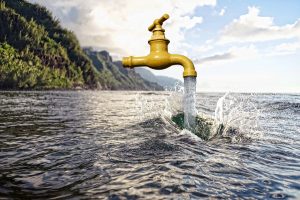By Valérie Le Brenne
Translation : Pierre Chabal
Passage au crible n°65

Pixabay
From March 12th till March 17th, 2012, the World Water Council organised in Marseille, France, the 6th World Water Forum. Entitled Time for Solutions, this triennial conference brought together over 20 000 participants from 140 countries. These tabled all issues and problems linked to the access to water and to sanitation. On this occasion, governments, ministers present adopted a declaration aiming to speed up the implementation of the right to drinking water recognised by the UN General Assembly in July 2010. Moreover, an on-line Forum – the Solutions for Water @platform – was inaugurated with a view to collect various proposals from world citizens.
> Historical background
> Theoretical framework
> Analysis
> References
The World Water Forum, held every three years since 1997, is an initiative of the World Water Council or WWC, created in 1996. The WWC is an independent UN body which aims at bringing together all actors with a vested interest in this sector in order to favour debate and the sharing of experience. What is at stake is the construction of a « common strategic vision » and to elaborate collectively ad hoc solutions. This multilateral forum, set up in Marseilles, has advisory consultative status to ECOSOC, the UN economic and Social Council, and federates at present over 300 organisations representing sixty countries.
Since the 1960s, findings about the depletion of natural resources have led to many international summits on the environment. In 1977, the Mar Del Plata Conference has heralded water as a Common Good of Humanity (CGH) and warned about the risks to this resource. However, one had to wait for the 1992 Dublin Conference to see guidelines set out for global governance. This first corpus enabled the adoption of the Integrated Management of Water Resources (IMWR), which acts now as a reference on the world level. Inspired from the French model, this system rests on a global approach of water management per hydrographical basin and calls for a devolution of public infrastructures to private operators.
Together with the Rio Summit, this conference represented a crucial stage in the coming about of a world awareness of the rarefaction of water resources. Above all, the Dublin conference made it possible to reach a consensus as to the creation of a World Water Council. In 2000, the Millenium Summit reconducted the WWC mission by inscribing the « access to sources of drinkable water » to the Millenium Development Goals, MDG.
Two lines of force are relevant
1. A sectoral multilateralism. As a Common Good of Humanity, water requires the setting up of, a global governance. In this vein, the organisation at regular intervals of world forums seems to participate to the construction of a « new multilateralism » as analysed by Robert Cox.
2. The exportation of a model of management. The improvement of access to drinking water and to sanitation requires substantial investments, which weak States do not seem able to assume. Here, the French PPP model (for Public-Private Partnership) has offered a much favoured solution in order to reach the MDG or Millenium Development Goals. However, a growing number of Sovereignty-Free Actors (James Rosenau) contest this approach and denounce the merchandization of a key resource.
The holding of the 6th World Water Forum reflects the deployment of global governance, which goes beyond the strict framework of the State. In this regard, we should remember that every year 5 million people are victims of diseases caused by the consumption of unsafe water, making it the leading cause of death worldwide. Simultaneously, population growth, the increase in irrigated area, urbanization and increased industrial pollution contribute to the depletion of water resources. Consequently, the pursuit of the Millennium Development Goals – which include “halving, by 2015, the percentage of the population without access to a sustainable supply of safe drinking water” – requires cooperation of all stakeholders within new multilateral arenas.
In addition, improving access to safe water and sanitation in developing countries requires heavy investments in infrastructure. The negotiations at various multilateral meetings have therefore led to the adoption of the French model of public-private partnership by many international organizations. This system based on an economic conception of global public goods, calls for solving this problem by greater involvement of market participants. This means that the non-free status of goods must allow sustainable funding of equipments as well as making people accountable of this issue. On ought to emphasize in this context that the World Bank and the IMF (International Monetary Fund) condition the granting of their aids to the implementation of this model by beneficiary States.
However, this approach remains contested by numerous NGOs denouncing the merchandization of this resource in developing countries. For these actors, privatization produces new inequalities because it implies an additional cost to households. In fact, this economic vision opposed the patrimonial conception of the common good, whereby a strong involvement of international bodies would make it possible to follow the best routes for Development. Suffice it to say that without prior consensus on the concept of Common Goods of Humanity CGH, the processes of negotiations remain structured by this strategic cleavage.
Thus, one can currently witness a phenomenon of convergence in NGOs opposed to this mode of governance. Assembled in coalitions, these actors pool in their capital to form new arenas, as shown in the fourth AWWF (Alternative World Water Forum) held in Marseilles from 14 to 17 March 2012. In this case, their claims concern the collusion of public and private interests within the World Water Council, of which several members in fact belong to the three French major water and sanitation companies. Therefore, the World Water Forum would represent a way to bring the interests of these firms internationally through the promotion of the PPP model. Denouncing a logic of “club“, the AWWF also questions the efficiency of this system and stresses the setbacks it has known for ten years in Africa and Latin America.
Cox Robert W. (Éd.), The New Realism: Perspectives on Multilateralism and World Order, New York, St. Martin’s Press, 1997.
Gabas Jean-Jacques, Hugon Philippe, « Les biens publics mondiaux et la coopération internationale », L’Économie politique, 12 (4), 2001, pp.19-31.
Hugon Philippe, « Vers une nouvelle forme de gouvernance de l’eau en Afrique et en Amérique latine », Revue Internationale et Stratégique, 66 (2), 2007, pp.65-78.
Rosenau James, Turbulence in World Politics: a Theory of Change and Continuity, Princeton, Princeton University Press, 1990.
Schneier-Madanes Graciela (Éd.), L’Eau mondialisée, Paris, La Découverte, 2010.
Smouts Marie-Claude, « La coopération internationale : de la coexistence à la gouvernance mondiale » in : Smouts Marie-Claude (Éd.), Les Nouvelles relations internationales, Paris, Presses de Sciences Po, 1998, pp. 135-160.




